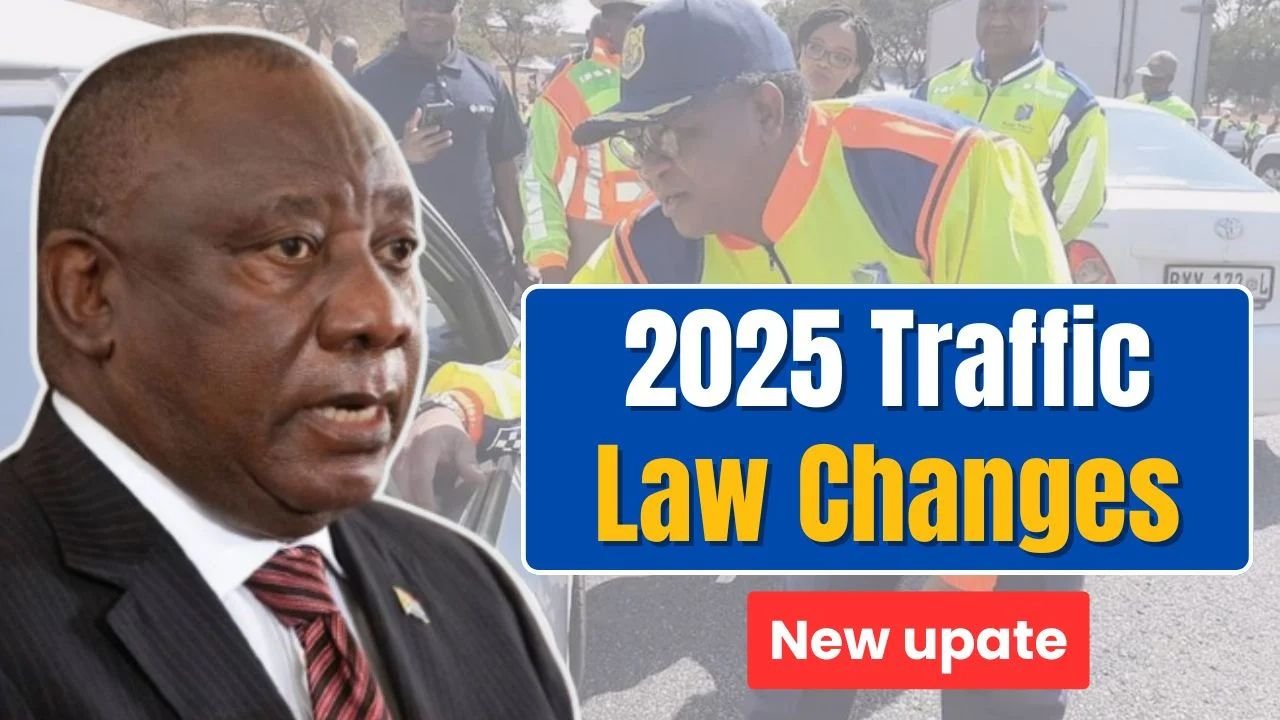The South African government has announced significant updates to its traffic regulations, set to take effect from 1 September 2025, as part of its broader plan to improve road safety and reduce fatalities.
These 2025 traffic law changes are not just procedural they come with stronger penalties, stricter enforcement, and new responsibilities for all vehicle owners and drivers. Whether you’re a daily commuter, a long-haul trucker, or a casual driver, these changes are likely to affect how you drive and how much you pay in fines.
What’s Changing in 2025?
The National Road Traffic Amendment Act of 2025 introduces a number of key reforms targeting reckless driving, unroadworthy vehicles, speeding, and driver behaviour. The amendments aim to bring South African road laws in line with international standards and also address challenges in traffic law enforcement and road safety.
Among the most notable updates are reduced speed limits in urban areas, zero-tolerance alcohol policies for young drivers, and mandatory retesting for certain categories of drivers. Traffic officials will also be given expanded authority to immediately suspend a driver’s licence under specific conditions.
New Speed Limits and Penalty Adjustments
One of the most immediate changes that motorists will notice is the reduction of speed limits in residential and urban zones. The government hopes this will lower accident rates in high-pedestrian areas and school zones.
| Road Type | Previous Speed Limit | New Speed Limit (2025) |
|---|---|---|
| Urban Areas (residential) | 60 km/h | 50 km/h |
| Near Schools | 60 km/h | 40 km/h |
| National Roads (cars) | 120 km/h | 120 km/h (unchanged) |
| National Roads (trucks) | 100 km/h | 90 km/h |
Fines for exceeding these limits have also been recalibrated. A driver caught going 20 km/h over the limit in a residential area could now face penalties of up to R2,500, along with potential license points being deducted.
Alcohol Limits Now Tighter Than Ever
South Africa is adopting a zero-tolerance policy on alcohol for drivers under 21 and new license holders. The allowable Blood Alcohol Content (BAC) for this category is now 0.00%, meaning even one drink could get you into legal trouble. For all other drivers, the BAC limit remains at 0.05%, but roadside checks are expected to become more frequent and stricter.
Mandatory Retesting for Older Drivers and Repeat Offenders
A new rule being introduced mandates compulsory retesting for drivers over the age of 70 every five years to ensure continued fitness to drive. Moreover, repeat traffic offenders particularly those caught speeding, using mobile phones while driving, or driving under the influence may be required to undergo a full driving assessment and road safety course before being allowed back on the road.
Licence Points and Immediate Suspensions
The revised Administrative Adjudication of Road Traffic Offences (AARTO) system will now include an updated points demerit system. Drivers who accumulate more than 12 demerit points can face immediate suspension of their licence for up to three months. Accumulating repeated suspensions could lead to permanent revocation.
Officials are also being empowered to issue immediate licence suspensions in cases of reckless or negligent driving that endangers others. This includes overtaking on blind rises, illegal U-turns, and ignoring school crossing zones.
What It Means for South African Drivers
The new rules demand a greater sense of responsibility from all motorists. South Africans will need to be more cautious, especially in residential areas, school zones, and when transporting children or vulnerable passengers. The increased focus on enforcement means that outdated license discs, unpaid fines, or expired driver’s licences will no longer be overlooked.
Motorists are encouraged to review their driving habits, ensure their vehicles are roadworthy, and update their personal records with the Department of Transport to avoid complications under the new system.
Preparing for the New Era of Road Safety
As the new traffic laws come into effect, government campaigns are expected to roll out across radio, television, and social media to educate the public. Free workshops and online resources will be made available to help drivers understand the new system and how to comply.





